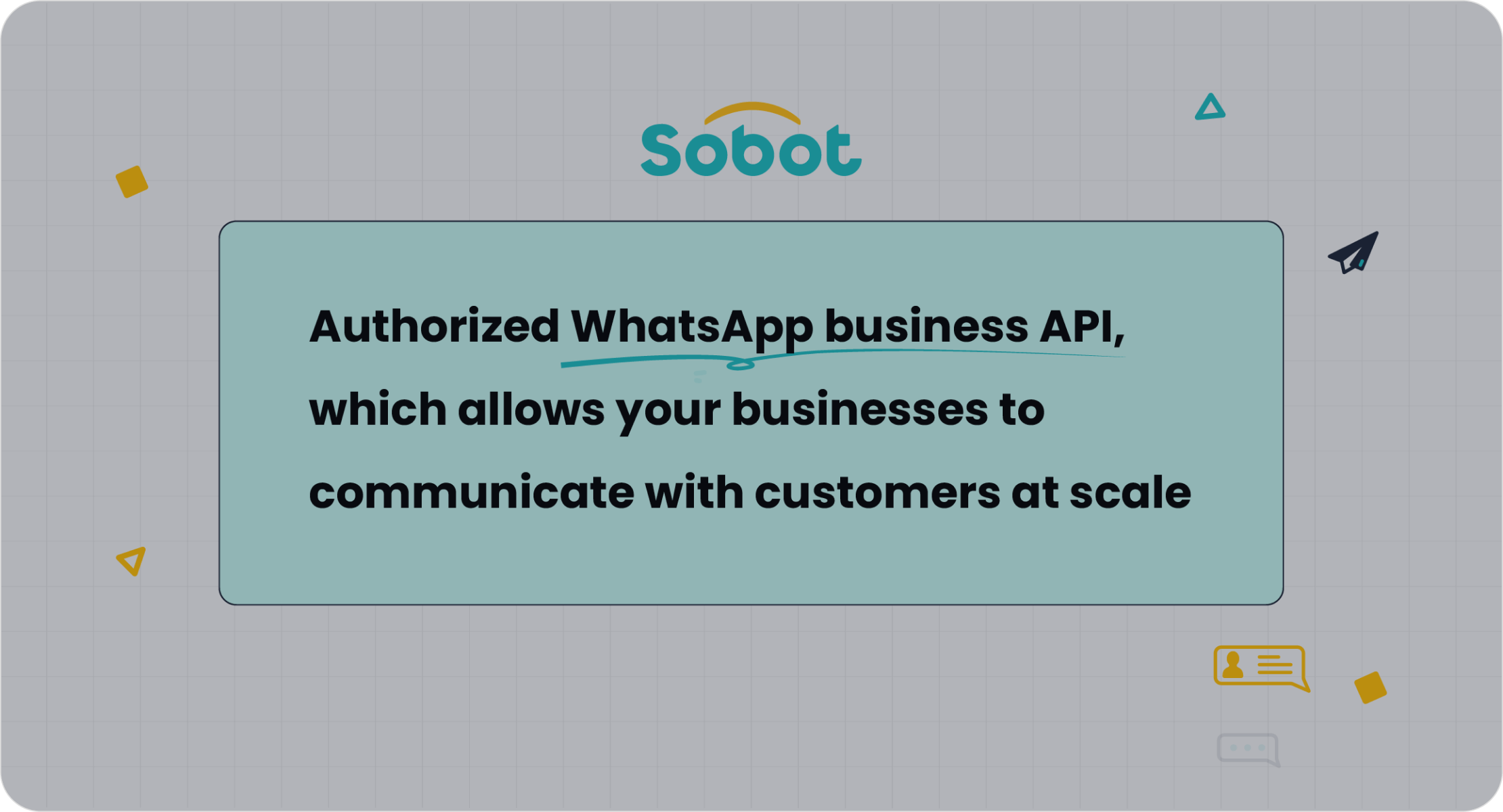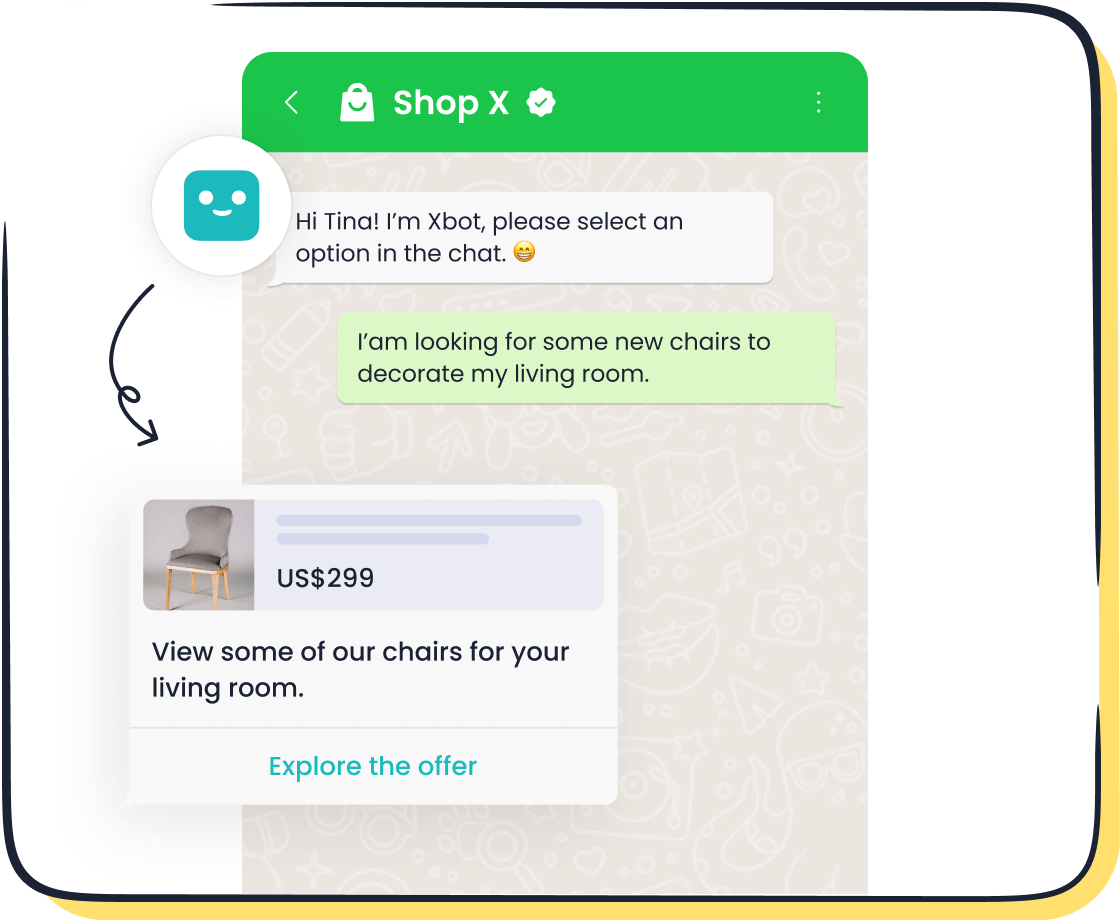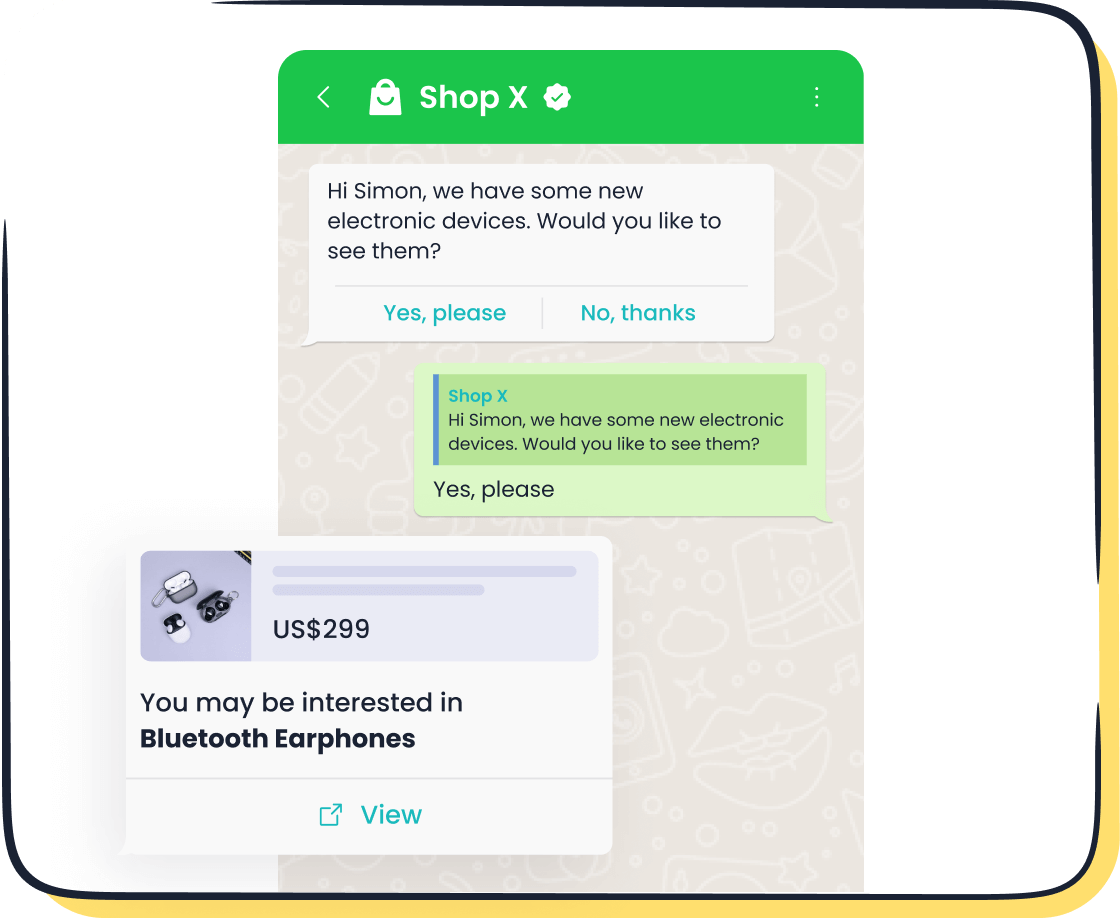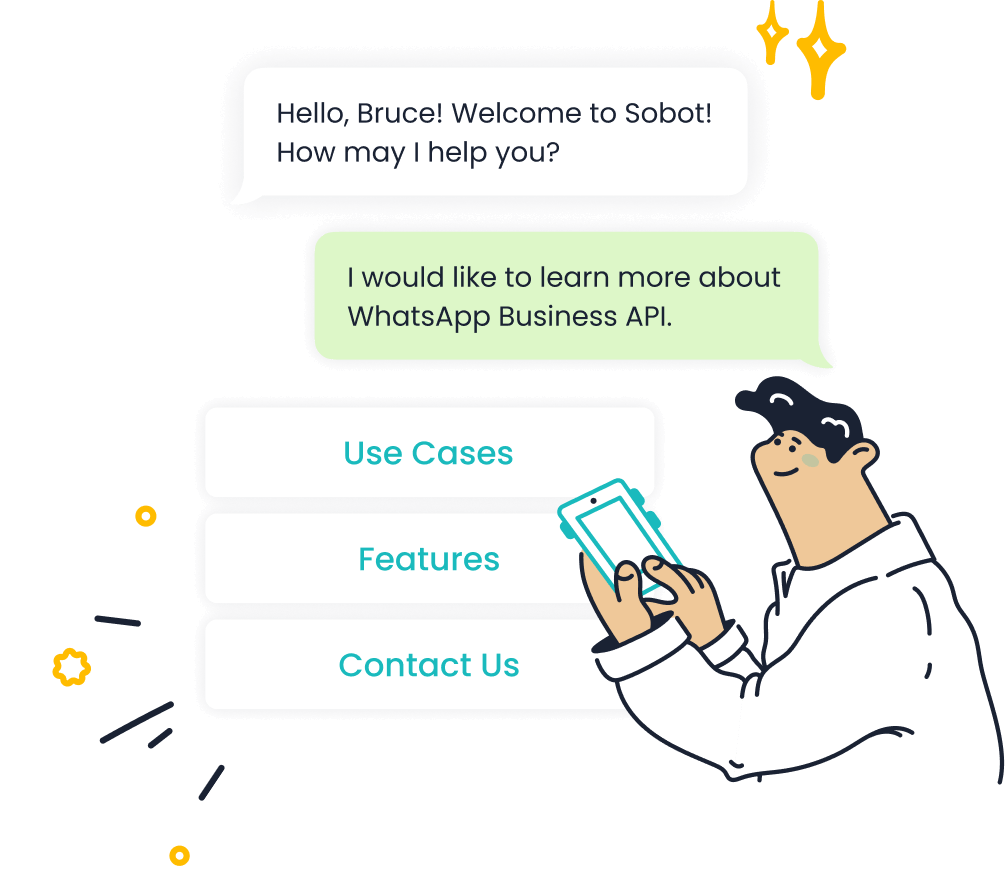What Is WhatsApp Business Account vs Email for Companies

In today’s fast-paced business world, effective communication tools are essential for maintaining strong customer relationships. If you're wondering, "What is WhatsApp Business Account?"—it’s a transformative platform that enables real-time, personalized interactions, allowing businesses to connect with their audience instantly. With an *impressive 98% open rate* and 80% of messages read within five minutes, WhatsApp ensures your messages stand out in a sea of crowded inboxes. Meanwhile, email continues to be a reliable option for formal and structured communication. Sobot takes WhatsApp Business to the next level by integrating advanced automation and analytics, making it an indispensable solution for businesses looking to engage customers efficiently.
What Is WhatsApp Business Account and Its Features
Key Features of WhatsApp Business
Business profiles and automated messaging
A WhatsApp Business Account allows you to create a professional presence with a dedicated business profile. This profile showcases essential details like your business name, contact information, and product or service offerings. It helps customers find and connect with you effortlessly. Additionally, you can automate messages to respond instantly to common inquiries, ensuring your customers never feel ignored. Features like quick replies and away messages save time while maintaining a seamless customer experience.
Real-time communication with customers
With WhatsApp Business, you can engage in real-time conversations with your customers. Whether they have questions about your products or need support, you can respond instantly. This immediacy boosts trust and satisfaction, making it easier to build lasting relationships. The platform also supports rich media and interactive features, such as images, videos, and clickable buttons, which enhance the way you communicate and keep your audience engaged.

Integration with Sobot for enhanced customer support
When paired with Sobot, WhatsApp Business messaging becomes even more powerful. Sobot’s integration enables advanced tools like smart chat routing and 24/7 chatbot support. These features ensure that every customer query reaches the right agent or gets resolved automatically. By combining Sobot’s capabilities with WhatsApp, you can streamline operations and deliver exceptional support.
Benefits of WhatsApp Business for Business Communication
High engagement rates and customer accessibility
WhatsApp boasts an impressive 98% open rate, far surpassing traditional communication channels. Most messages are read within minutes, giving you unparalleled access to your audience. This high engagement ensures your updates, promotions, and support messages reach customers effectively, helping you boost customer engagement.
Personalization and conversational tone
Unlike formal platforms, WhatsApp Business allows you to adopt a friendly, conversational tone. You can personalize messages based on customer preferences, creating meaningful interactions. This approach fosters loyalty and makes your brand more relatable.
Cost-effective for small and medium businesses
For small and medium-sized businesses, choosing the right platform is crucial. WhatsApp Business offers a cost-effective solution with features like bulk messaging and automation. These tools help you manage customer interactions efficiently without straining your budget.
How Sobot Enhances WhatsApp Business
WhatsApp API for bulk messaging and automation

Sobot’s WhatsApp API takes your communication to the next level. It allows you to send messages to thousands of users simultaneously, making it ideal for marketing campaigns or updates. You can also automate workflows, saving time and reducing manual effort.
Smart chat routing and 24/7 chatbot support
With Sobot, you can implement smart chat routing to ensure every customer gets the right assistance. The 24/7 chatbot support handles inquiries round the clock, providing instant responses and improving the overall customer experience.
Data analytics for improved customer insights
Sobot’s integration includes robust data analytics tools. These tools help you track customer interactions, measure engagement, and gain insights into preferences. By leveraging this data, you can refine your strategies and deliver more personalized experiences.
Overview of Email for Business Communication
Email has long been a cornerstone of business communication, offering reliability and professionalism that few other tools can match. Despite the rise of instant messaging platforms like WhatsApp, email remains indispensable for companies worldwide. Its structured format, scalability, and universal acceptance make it a go-to solution for formal interactions and detailed exchanges.
Key Features of Email
Structured format for professional communication
Email provides a polished and organized way to communicate. You can craft messages with clear subject lines, headers, and signatures, ensuring a professional tone. This structure is ideal for formal correspondence, such as proposals, contracts, or meeting summaries. It also allows you to maintain a record of all interactions, which is crucial for accountability and future reference.
Ability to send large files and attachments
One of email’s standout features is its ability to handle large files. Whether you need to share presentations, spreadsheets, or high-resolution images, email makes it easy. Many email platforms support attachments up to 25 MB, and cloud integrations like Google Drive or OneDrive allow you to send even larger files seamlessly.
Integration with CRM tools and platforms
Email integrates effortlessly with Customer Relationship Management (CRM) tools, enabling businesses to streamline their workflows. These integrations help you track customer interactions, automate follow-ups, and manage leads effectively. For instance, you can sync emails with platforms like Salesforce or HubSpot to enhance your sales and marketing efforts.
Benefits of Email for Companies
Universally accepted and widely used
Email is a universally recognized tool, making it accessible to virtually everyone. Unlike newer platforms that may require specific apps or accounts, email works across all devices and operating systems. This widespread adoption ensures that your messages reach their intended audience without barriers.
Ideal for formal and long-form communication
When you need to convey detailed information, email excels. It allows you to include comprehensive explanations, charts, and supporting documents in a single message. This makes it perfect for formal communication, such as sending reports, legal documents, or detailed project updates.
Scalable for businesses of all sizes
Whether you’re a small startup or a multinational corporation, email scales effortlessly. You can send personalized messages to individual clients or use bulk email tools for marketing campaigns. Platforms like Mailchimp or Constant Contact make it easy to manage thousands of recipients while maintaining a professional touch.
Limitations of Email in Modern Business Communication
Slower response times compared to instant messaging
Email often lacks the immediacy of tools like WhatsApp. While it’s great for formal exchanges, it may not be the best choice for urgent queries. Delays in responses can impact customer satisfaction, especially in industries where speed is critical.
Lower engagement rates for customer interactions
Emails can sometimes get lost in crowded inboxes, leading to lower engagement rates. Studies show that the average email open rate hovers around 20%, far below the 98% open rate of WhatsApp Business messages. This makes email less effective for time-sensitive promotions or updates.
Risk of emails being marked as spam
Spam filters can pose a significant challenge for email campaigns. Even well-crafted messages may end up in the junk folder, reducing their visibility. Businesses must follow strict guidelines to ensure their emails reach the intended audience, which can be time-consuming.
WhatsApp vs Messenger and Email: A Comparative Analysis
When choosing the right communication tool for your business, understanding how platforms like WhatsApp, Facebook Messenger, and Email compare can help you make informed decisions. Each offers unique strengths, but their effectiveness depends on your goals and audience preferences. Let’s break it down.
Communication Speed and Engagement
Real-time messaging vs delayed responses
Speed matters in today’s fast-paced world. WhatsApp and Facebook Messenger excel in real-time messaging, allowing you to respond instantly to customer inquiries. WhatsApp, in particular, stands out with 80% of messages read within the first five minutes. This immediacy fosters trust and keeps customers engaged. Email, on the other hand, often involves delays. While it’s reliable for formal communication, it lacks the instant connection that messaging platforms provide.
Customer engagement and open rates
Engagement rates highlight the stark difference between these tools. WhatsApp boasts a 98% open rate, with click-through rates reaching up to 60%. Facebook Messenger also performs well, offering interactive features like quick replies and chatbots. Email, however, struggles with an average open rate of just 20%, making it less effective for time-sensitive updates or promotions. If you want your messages to be seen and acted upon, WhatsApp and Messenger are clear winners.
Data Security and Privacy
End-to-end encryption in WhatsApp Business
Data security is a top priority for businesses. WhatsApp Business ensures privacy with end-to-end encryption, protecting messages from unauthorized access. This feature makes WhatsApp a trusted choice for sensitive communications. Facebook Messenger, while secure, doesn’t always offer the same level of encryption by default, which may raise security concerns for some users.
Email vulnerabilities and spam filters
Email faces challenges in maintaining security. Spam filters often block legitimate messages, reducing visibility. Additionally, emails are vulnerable to phishing attacks and data breaches. Unlike WhatsApp, email lacks built-in encryption for every message, which can leave sensitive information exposed. For businesses prioritizing data security, WhatsApp provides a more robust solution.
Cost and Scalability
Cost-effectiveness for small businesses
WhatsApp Business offers a cost-effective way to connect with customers, especially for small businesses. Features like bulk messaging and automation help you save time and resources. Facebook Messenger also provides free tools for basic customer interactions, making it accessible for startups. Email, while affordable, may require additional investments in marketing tools or CRM integrations to achieve similar results.
Scalability for large enterprises
For larger enterprises, scalability becomes crucial. WhatsApp Business API, supported by Sobot, allows you to manage high volumes of customer interactions seamlessly. You can send bulk messages, automate workflows, and analyze engagement data to refine your strategies. Facebook Messenger also scales well but may lack the advanced analytics and automation capabilities offered by WhatsApp. Email remains a reliable option for mass communication, but its lower engagement rates can limit its impact.
By understanding these differences, you can choose the platform that aligns with your business needs. Whether you prioritize real-time engagement, data security, or scalability, tools like WhatsApp Business, Facebook Messenger, and Email each bring something valuable to the table.
Use Cases and Suitability
WhatsApp Business for customer support and marketing
When it comes to real-time customer support and marketing, WhatsApp Business shines as a top choice. Its ability to deliver instant messages ensures that your customers receive timely responses, which builds trust and satisfaction. With an impressive 98% open rate and 80% of messages read within five minutes, WhatsApp guarantees that your updates and promotions won’t go unnoticed. This makes it a powerful tool for engaging your audience and driving conversions.
For marketing, WhatsApp allows you to send personalized messages, promotional offers, and even interactive content like images or videos. These features create a conversational experience that feels personal and engaging. Businesses can also leverage the WhatsApp Business API by Sobot to automate bulk messaging and streamline campaigns. For example, companies like J&T Express have used Sobot’s WhatsApp solutions to achieve a 35% increase in delivery rates while reducing costs by 50%. This demonstrates how WhatsApp can transform customer interactions and operational efficiency.
Email for formal communication and documentation
Email remains the gold standard for formal communication and documentation. Its structured format allows you to convey detailed information professionally, making it ideal for proposals, contracts, and reports. Unlike WhatsApp, email provides a permanent record of correspondence, which is essential for accountability and future reference.
Additionally, email excels in handling large files and attachments. Whether you’re sharing presentations, spreadsheets, or high-resolution images, email ensures seamless delivery. Integration with CRM tools further enhances its utility, enabling businesses to track interactions and manage leads effectively. For instance, syncing emails with platforms like Salesforce can streamline workflows and improve productivity. While email may not match WhatsApp’s engagement rates, its reliability and scalability make it indispensable for businesses of all sizes.
When to Use WhatsApp Business vs Email for Business Communication
Scenarios Where WhatsApp Business Excels
Real-time customer support and engagement
When speed is critical, WhatsApp Business messaging stands out as the ideal tool. It allows you to respond instantly to customer inquiries, ensuring a seamless flow of communication. Whether customers need help troubleshooting an issue or have questions about your products, WhatsApp enables you to provide real-time solutions. This immediacy not only builds trust but also creates a better customer experience. For example, businesses using WhatsApp have reported significant improvements in customer satisfaction due to its instant engagement capabilities.
Marketing campaigns and promotions
If you’re looking to boost customer engagement and increase conversions, WhatsApp is a game-changer for marketing. Its ability to send personalized messages, rich media, and interactive content makes it perfect for promotions. You can share product updates, exclusive offers, or even videos to captivate your audience. With an impressive 98% open rate, WhatsApp ensures your campaigns reach your customers effectively. Companies like J&T Express have leveraged Sobot’s WhatsApp solutions to streamline their marketing efforts, achieving remarkable results such as a 35% increase in delivery rates.
Scenarios Where Email Excels
Formal communication with clients or partners
Email remains unmatched for professional and formal interactions. It provides a structured format that’s perfect for communicating with clients or partners. Whether you’re sending proposals, legal documents, or meeting summaries, email ensures your message is clear and professional. Its ability to maintain a record of all correspondence also makes it invaluable for accountability and future reference.
Sharing detailed reports or contracts
When you need to share comprehensive information, email is the go-to platform. It allows you to attach large files like reports, contracts, or presentations, ensuring your recipients receive all the necessary details. Many email platforms also integrate with tools like Google Drive or OneDrive, making it easy to send even larger files. This capability makes email indispensable for businesses that rely on detailed documentation.
Combining WhatsApp Business and Email for Maximum Efficiency
Using WhatsApp for quick interactions and Email for follow-ups
Why choose one when you can use both? WhatsApp excels at quick, real-time interactions, while email is perfect for detailed follow-ups. For instance, you can use WhatsApp to confirm an appointment or answer a quick question, then follow up with an email containing a detailed summary or additional resources. This combination ensures you cover all aspects of customer communication effectively.
Integrating both tools with Sobot for seamless communication

Sobot makes it easy to combine the strengths of WhatsApp and email. Its advanced integration capabilities allow you to manage both platforms from a single interface. You can automate messages on WhatsApp for instant engagement and use email for more formal exchanges. Sobot’s analytics tools also help you track performance across both channels, enabling you to refine your strategies and deliver a better customer experience. By choosing the right platform for each scenario, you can optimize your business communications and achieve greater efficiency.
WhatsApp Business and Email each bring unique strengths to business communication. WhatsApp Business, with its real-time messaging and personalized interactions, helps you build stronger customer relationships and boost engagement. It’s perfect for quick responses, marketing campaigns, and customer support. On the other hand, Email excels in formal communication, offering a structured format for detailed reports, contracts, and professional exchanges.
By combining both tools, you can create a seamless communication strategy. Use WhatsApp for instant updates and Email for comprehensive follow-ups. With Sobot’s solutions, you can integrate these platforms effortlessly, streamlining your processes and enhancing customer satisfaction. This balanced approach ensures you meet diverse communication needs while optimizing efficiency.
FAQ
What is WhatsApp Business, and how does it differ from the standard WhatsApp app?
WhatsApp Business is a platform specifically designed for businesses to communicate with their customers. Unlike the standard WhatsApp app, it offers features like business profiles, automated responses, and catalog options. These tools help you create a professional presence and streamline customer interactions. For example, you can set up quick replies for FAQs or showcase your products directly within the app. This makes WhatsApp Business an ideal choice for companies aiming to enhance customer engagement and satisfaction.
How can WhatsApp Business improve customer engagement?
WhatsApp Business allows you to send personalized messages, respond instantly to inquiries, and use rich media like images and videos. These features make your communication more engaging and interactive. With an impressive 98% open rate, your messages are almost guaranteed to be seen. Businesses using tools like Sobot’s WhatsApp API can further enhance engagement by automating bulk messages and analyzing customer interactions for better insights.
What are the benefits of using the WhatsApp Business API?
The WhatsApp Business API enables businesses to scale their communication efforts. It supports bulk messaging, workflow automation, and smart chat routing. For instance, you can send promotional updates to thousands of customers at once or automate appointment reminders. Sobot’s integration with the API adds advanced features like 24/7 chatbot support and data analytics, helping you deliver a seamless customer experience while saving time and resources.
Is WhatsApp Business suitable for small businesses?
Yes, WhatsApp Business is highly suitable for small businesses. It offers cost-effective tools like automated messaging and quick replies, which help you manage customer interactions efficiently. You can also use the platform to build stronger relationships by sending personalized updates or promotions. For small businesses looking to maximize their reach without overspending, WhatsApp Business provides an excellent solution.
Can I use WhatsApp Business for marketing campaigns?
Absolutely! WhatsApp Business is a powerful tool for marketing campaigns. You can send personalized promotions, share product updates, and even include interactive content like videos or clickable buttons. With Sobot’s WhatsApp API, you can automate these campaigns and track their performance through analytics. Companies like J&T Express have successfully used WhatsApp for marketing, achieving a 35% increase in delivery rates and a 50% reduction in costs.
How does WhatsApp Business ensure data security?
WhatsApp Business uses end-to-end encryption to protect all messages, ensuring that only you and your customer can read them. This level of security makes it a trusted platform for sensitive communications. Additionally, when integrated with Sobot, you gain access to secure data analytics tools that comply with global privacy standards, further safeguarding your customer information.
What types of businesses benefit most from WhatsApp Business?
Businesses across various industries, including retail, logistics, and financial services, benefit from WhatsApp Business. For example, e-commerce companies can use it for order confirmations and customer support, while service providers can send appointment reminders. The platform’s versatility makes it suitable for any business looking to improve customer communication and engagement.
Can I integrate WhatsApp Business with other tools?
Yes, WhatsApp Business integrates seamlessly with tools like CRM systems and customer support platforms. Sobot’s solutions allow you to manage WhatsApp messages alongside emails, live chats, and calls from a single interface. This integration simplifies your workflows and ensures consistent communication across all channels.
How does WhatsApp Business compare to email for customer communication?
WhatsApp Business excels in real-time communication and engagement, boasting a 98% open rate compared to email’s average of 20%. It’s ideal for quick updates, customer support, and marketing campaigns. Email, on the other hand, is better suited for formal communication and detailed documentation. By combining both tools, you can cover all aspects of customer interaction effectively.
How do I get started with WhatsApp Business?
Getting started is simple. You can download the WhatsApp Business app for basic features or opt for the WhatsApp Business API for advanced capabilities. Sobot, as an official WhatsApp Business Solution Provider, can guide you through the setup process. Visit Sobot’s WhatsApp page to learn more or book a demo to explore how it can transform your business communication.
See Also
Setting Up Batch Messaging For WhatsApp Business Made Easy
The Impact of WhatsApp Chat on Website Engagement
Effective Ways To Integrate WhatsApp On Your Website
